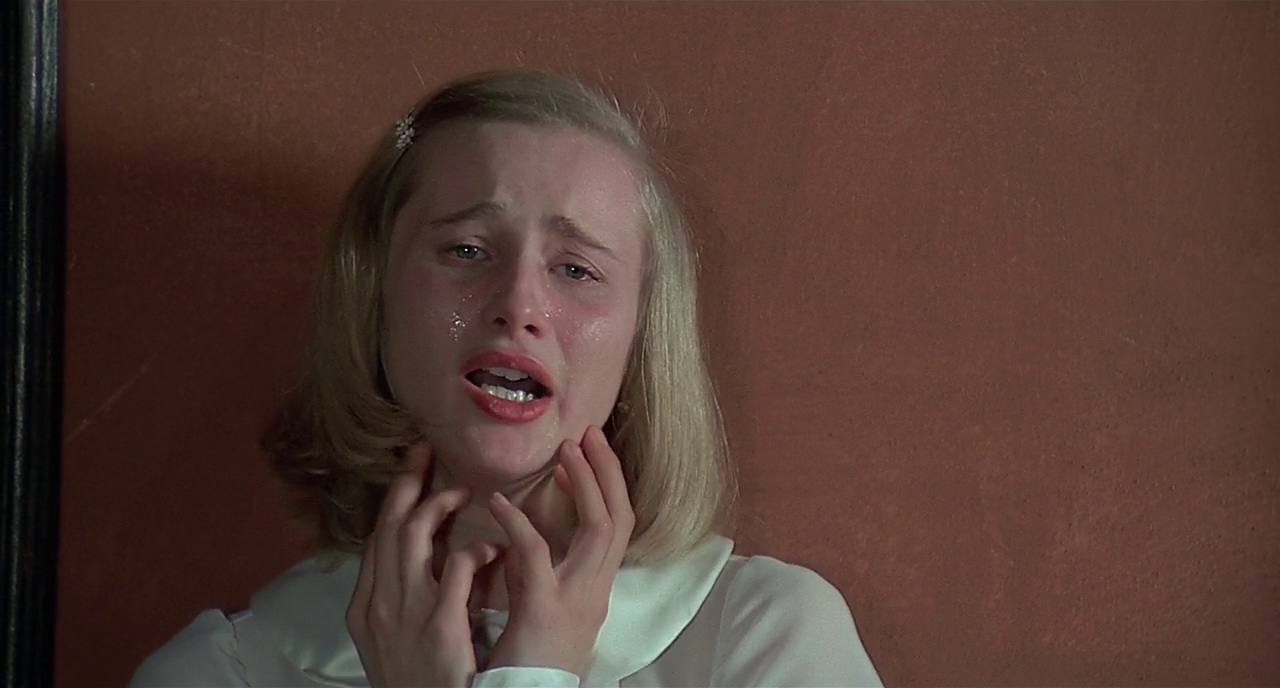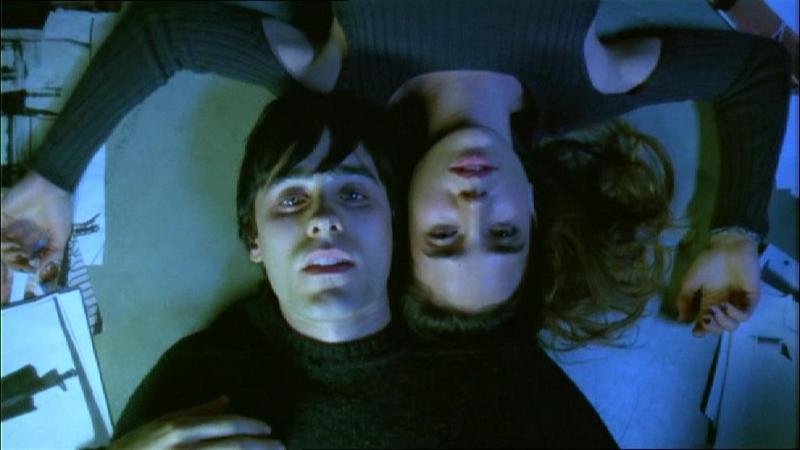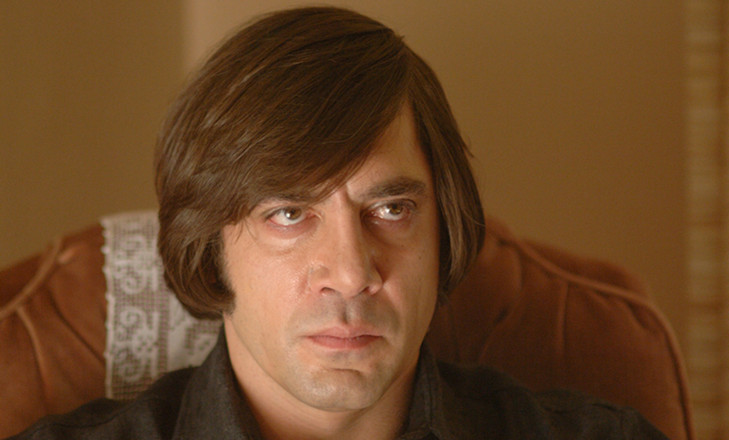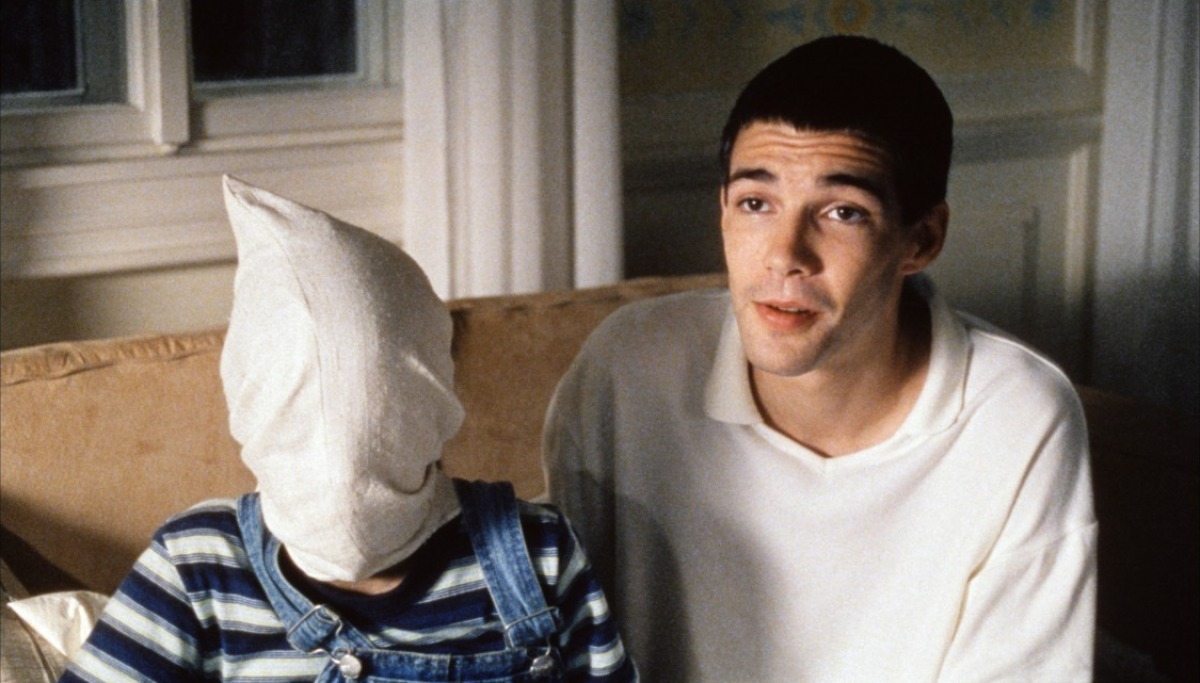8. There Will Be Blood (Paul Thomas Anderson, 2007)
Director P.T. Anderson is not new to creating nihilistic tinged films (such as Magnolia), but he reached his magnum opus in this regard with this film. The story concerns a prospector who is trying to expand his wealth, but during his trials he will encounter a lot of problems such as a crazed minister, financial manipulation, and a troubled adopted son.
Where’s the nihilism? The main character, who is played by the incredible Daniel Day Lewis, is one of the most nihilistic on this list. He has no morals, he denies everything spiritual in his life until the end and he is strong and disturbed enough to be a killer. P.T.Anderson has created a philosophically evil character who ranges from cynical to utilitarian in his thoughts,and from evil to good in his actions. No one with any values could behave like that.
7. Requiem For a Dream (Darren Aronofsky, 2000)
If Fear and Loathing in Las Vegas showed the comic and grotesque side of drug culture, then Requiem for a Dream shows the pure abyss of it. In this film the viewer is not situated with nihilistic characters but with a nihilistic milieu. The story revolves around drug addiction in several aspects from start to finish. The way this manifests itself could result in the film becoming a thriller but the theme is handled in another way entirely.
Aronofsky has created a series of short edits in order to evoke a sort of hallucination effect on the viewer. What will hit home for many is the absolute devastation brought about by this situation. There is no mercy for any of the film’s character. Nihilism will reach its zenith in destroying the characters’ lives. The film is divided in three seasonal sections and it is clearly metaphor in the fact that there’s no spring for them: there will be no redemption. Nihil is the only possible result for these sad characters.
6. Clockwork Orange (Stanley Kubrick, 1971)
This film is an iconic classic which truly manifest a nihilistic spirit. This is particularly true in the first part of the film which is centered on the “ultra-violence” brought on by a gang of “droogs” (slang of this future world). This dystopic reality could be labeled with a subtitle: the story of a nihilist in society.
The main character, Alex, apart from good musical taste, is a pure nihilist. In the second half there is a sort of redemption orchestrated by the Minister of Interior via the new Ludovico cure technique for criminals. Kubrick (and by extension, Anthony Burgess, the novel’s writer) focuses his attention on the false cure trumpeted by the ministerial organization.
In reality there’s no cure, ultra-violence will return whatever is done to prevent it. In an unconscious way, misanthropy was present in American Psycho, but in this film it is openly manifest. Logically, misanthropy is connected to nihilism and in this picture the two merge. Not only has Kubrick created a nihilist character but also has placed him in a nihilist society. There need to be no more explanations for there is no cure and no moral, only “ultra-violence”. Is this an aspect of nihilism or not?
5. Dogville (Lars Von Trier, 2003)
Lars Von Trier is surely one of the top nihilist directors to have worked in cinema. In his films it’s easy to spot antisocial traits. His idea of nihilism is particular: his main characters are rarely nihilists. On the contrary, they are virtuous people. The problem is that the entire world which surrounds them is a cruel, unfair void.
Dogville is the story of a mafia’s boss daughter who takes refuge in a little country village where she will try to construct a new life in this isolated social structure. Apparently the village is isolated from the cruelty present in big cities. The irony of this idea will be revealed in a most hypocritical way.
Von Trier creates a complex psychological storyline and in order to focus on it, he doesn’t even create a realistic mise-in-sene since the village is created by some black rows in a light background. The director wants to show the omnipresent unfairness of men which is present in every society and which hypocrisy doesn’t deserve any salvation.
Dogville presents a world too cruel for any redemption and also inherent wickedness which is connected to men only. Nihilism and misanthropy here are married perfectly.
4. No Country For Old Men (Joel and Ethan Coen, 2007)
Nihilism is always present in Coen’s cinema, but here it reaches its apotheosis, likely due to the fact that this film is based on a novel written by a nihilist writer: Cormac McCarthy. A man finds a large amount of money after a criminal shootout and tries to secrete it for himself. The problem is that someone else knows that money was there. In the meantime the sheriff is trying to find the first man in order to prevent his death.
Apart from an intriguing plot, the film presents a nihilist world of assassins and thieves who are, obviously, nihilist people. The situation is akin to a black hole which will absorb everything. In particular a serial killer (like the one in Fargo), played by an amazing Javier Bardem, is a perfect representation of pure nihilism.
On the other side is the sheriff who is a weak counterpart. The policeman is surrounded by monsterous individuals, ready to kill for financial reasons. If justice is helpless in the face of this, what can remain? Surprisingly there’s no clear conclusion for this movie, only an inconclusive one which shows a complete suspension of all moral imperatives . Here is perhaps the Coen’s brother best film, or at least their most representative one.
3. Funny Games (Michael Haneke, 1997 & 2007)
This sick film was made by the Austrian director Michael Haneke. In fact, these are two movies shot ten-years apart, with one a shot-for-shot remake of the other (Version two is shot in English.)
A family of three goes on vacation to a country house, unluckily for them a couple of golf players decide to bother them in every possible way. The pair become more vicious with each encounter up until the moment where they decide to humiliate the parents No one is spared from the cynical sadism of the two madmen, not even the son or the dog!
There’s a scene where the family has the potential for rescue but the director negates it with a rewind effect. In this film the innocents are completely dominated by the wicked. This is a very nihilist film, which denies any form of goodness, salvation or revenge. The enemies have no values except a certain regard for words. They speak correctly but they behave horribly.
In this film Haneke has likely found the extreme limit of ethical void in film representation. He wants to show the complete impotence of goodness towards the immense cruelty brought by nihilism. This is a simplification but perhaps only a reflection of the harshness of nihilism itself. Nihilism denies the entire concept of style (except the Nietzschean revaluation of all values) and simple harshness is a possible reaction towards everyday life.
2. Salò or the 120 Days of Sodom (Pier Paolo Pasolini, 1975)

If Funny Games shows the dark side, pure sadism without any mediation, Salò or The 120 Days of Sodom enlarges that context. Sadism is only a face of fascism at its extreme: that’s director Pasolini’s explanation for it. Four fascist officials (simply called the President, the Bishop, the Duke and the Magistrate) captures a group of young boys and girls and bring them to a big country house. In this residence exist a lot of rules created by the officials.
The film is influenced by the geography of Dante’s Inferno and the film is divided into chapters. The officials represent power (The President represents economics, the Bishop the church, the Duke the nobility and the Magistrate the judiciary), all of which completely annihilates their humanity. Helped by military force of SS, the sadists commence a series of incredibly cruel acts towards the young people.
The film details the most extreme acts of gruesomeness, where the darkest side of nihilism reaches an appalling level. Pasolini equates absolute fascism with absolute sadism through the corruption of bourgeois power. Hierarchy not only denies every value but also humanity itself by completely humiliating human beings. Marx’s visions and the ideas of other philosophers such as Klossowski and Blanchot, influenced Pasolini as he strained to the limit of observation.
This acclaimed director was able to combine cultural influences with monstrosity and the result is disturbing. If this film is considered completely disgusting due to coprophagy, rape, sadistic, gore, but also takes in a psychological stance towards the nihilistic hierarchs, which negate to humanity its dignity.
1. Dancer In The Dark (Lars Von Trier, 2000)
This film may even be more nihilistic than Salo. It may be less raw than that film but may well be a good synthesis of all qualities discussed on this list. Here are a number of elements which perfectly represent nihilism in everyday manifestation.
The film is based on the story of a Czechoslovakian woman raising her son in the US. This woman loves music but she has to renounce to her musical dreams for her child. Since music is a powerful influence in her life, her dreams are presented like American musicals. Unfortunately she’s going blind and her condition is hereditary.
In order to prevent her son from the same fate she saves money in order to pay for a cure. The woman crosses paths with a desperate policeman, who creates a terrible dilemma for her. Selma, the main character played by singer Bjork, not only has to face her blindness but she has to fight for both legal justice and justice of a higher sort. Her fate might seem like a sacrifice but the last scenes of this film denies this interpretation.
Where’s the real justice? Society permits to a morally upright women such as Selma to fall into the horrible trap set by the policeman. Von Trier shows that nihilism is a cause and effect process, a reaction. This movie delivers a good picture of the nothingness of good in the face of, not evil, but nihilism. Since nihilism denies the difference between good and evil, everything ends up becoming gray.
Von Trier creates a cosmic nihilism in its most credible form: what’s the point of goodness in the world if there’s no one to appreciate it? Von Trier replaces Pasolini’s wickedness as related to fascism for a complete “fade to black”.
Balanced between lyrical and disturbing tones, this strange musical shows nihilism surfacing without becoming too harsh visually. Selma oscillates between her bright musical world and dark reality. Psychologically thrilling and philosophically deep, this is the best of nihilistic cinema.
Author Bio: Luca Badaloni is studying his master’s degree in Philosophy. He believes that cinema is a perfect instrument for philosophical ideas and actually society needs critical thinking in several ways. He loves to write script, direct short movies but mostly, he loves reading.






